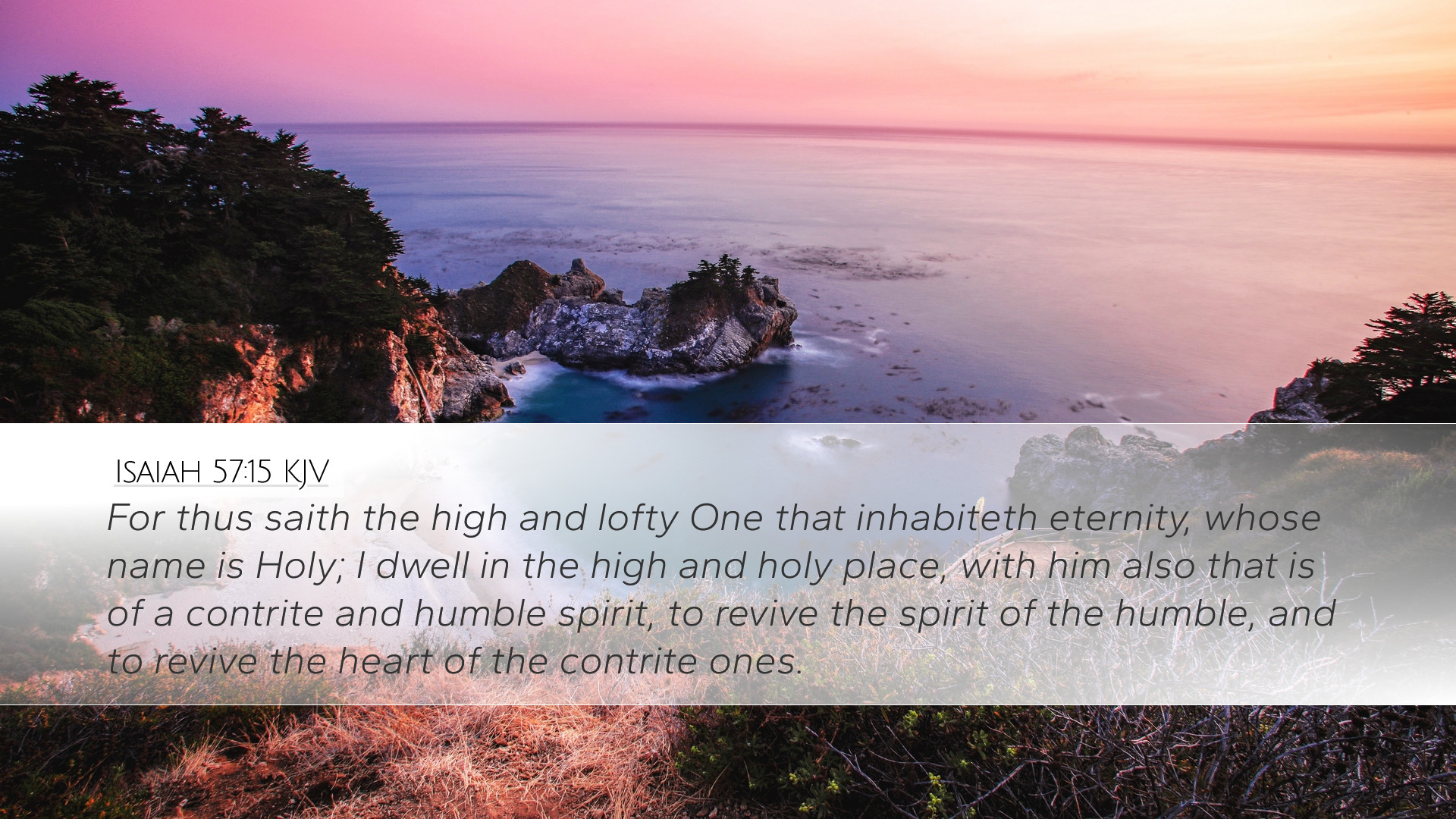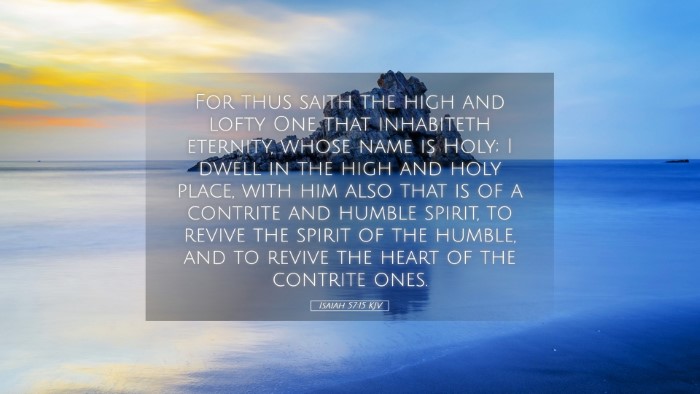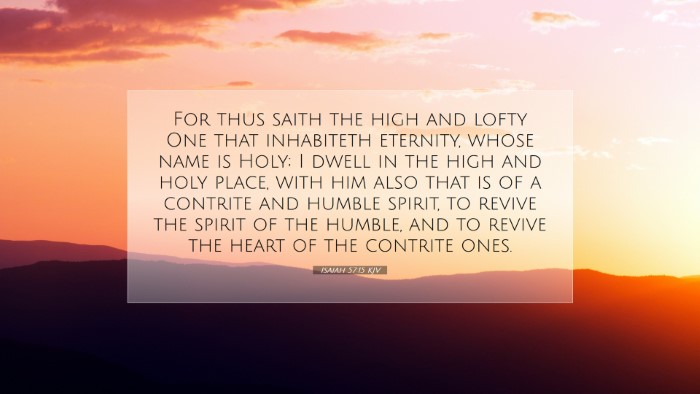Commentary on Isaiah 57:15
Verse: Isaiah 57:15 "For thus says the high and exalted One who lives forever, whose name is Holy, 'I dwell on a high and holy place, and also with the contrite and lowly of spirit, to revive the spirit of the lowly and to revive the heart of the contrite.'
Introduction
The profound message of Isaiah 57:15 speaks to the heart of God's relationship with humanity, revealing His nature as both transcendent and imminent. This verse lays the foundation for understanding God's character and His willingness to engage with those who are humble and broken. Drawing insights from various public domain commentaries, we will explore the layers of meaning and theological implications contained within this verse.
God's Exalted Position
Isaiah begins with a declaration of God's greatness: He is "the high and exalted One." Matthew Henry emphasizes that God's exalted nature reflects His sovereignty over all creation. He reigns supreme, transcending all earthly powers and authorities. In this context, God's holiness is paramount, as Albert Barnes points out, underlining the absolute purity and perfection of God's character, which sets Him apart from everything else.
- Transcendence: God is described as living forever, highlighting His eternal nature and majesty.
- Holiness: His name is declared holy, marking the intrinsic value and sacredness of His essence.
God's Imminence and Accessibility
In contrast to His high and exalted position, this verse also asserts that God chooses to dwell with the "contrite and lowly of spirit." Adam Clarke notes that this reveals God's remarkable willingness to be accessible to those who are humble. The juxtaposition of God's awe-inspiring nature and His proximity to the lowly manifests a beautiful aspect of divine grace.
- Compassion for the Broken: God’s heart is inclined towards those who are crushed in spirit, offering comfort and revival.
- Reviving the Lowly: The promise that God will revive the spirit of the lowly signifies a restoration that only He can provide.
The Nature of Humility and Brokenness
The terms "contrite" and "lowly" serve as criteria for God’s companionship. Matthew Henry explains that contrition refers to a brokenness of heart over sin, while lowliness speaks to an attitude of humility before God. Together, these qualities attract the divine presence and favor. This challenge serves as a reminder that human pride and self-sufficiency are barriers to a close relationship with God.
- Contrite Spirit: A genuine recognition of one’s sins evokes God’s mercy and revival.
- Lowly of Heart: Humility positions an individual to receive God’s grace and restoration.
Theological Implications
This verse speaks to several theological themes that resonate throughout Scripture. The dual aspect of God's character reveals a God who is both righteous and merciful, making it essential for believers to pursue a life marked by humility and repentance. The promise of revival is both a personal and communal encouragement, inviting the faithful to seek God's presence actively.
- The Nature of Repentance: Isaiah 57:15 exemplifies the biblical paradigm of turning away from pride and sin.
- Divine Revival: The theme of revival is integral to the prophetic messages, calling for spiritual awakening and restoration.
Application for Believers
For pastors, theologians, and students of the Word, Isaiah 57:15 serves as a crucial reminder of the attitudes that God cherishes. It calls for reflection on one's spiritual condition and the necessity of approaching God with a humble heart.
- Encouragement for the Weary: Those feeling burdened by their failures can find hope in God's promise to revive.
- Call to Humility: The believer is urged to embody a contrite spirit as an invitation for God's transformative work.
- Community Restoration: This verse encourages the church to uphold humility and grace, fostering a community where brokenness is met with acceptance and healing.
Conclusion
The depth of Isaiah 57:15 resonates deeply with the message of the Gospel. God’s holiness does not alienate Him from humanity; rather, it beckons the humble to approach Him with sincerity. As we meditate on this verse, may we embrace the attributes of being contrite and lowly, allowing God to work within us and through us, resulting in spiritual revival both individually and collectively.


